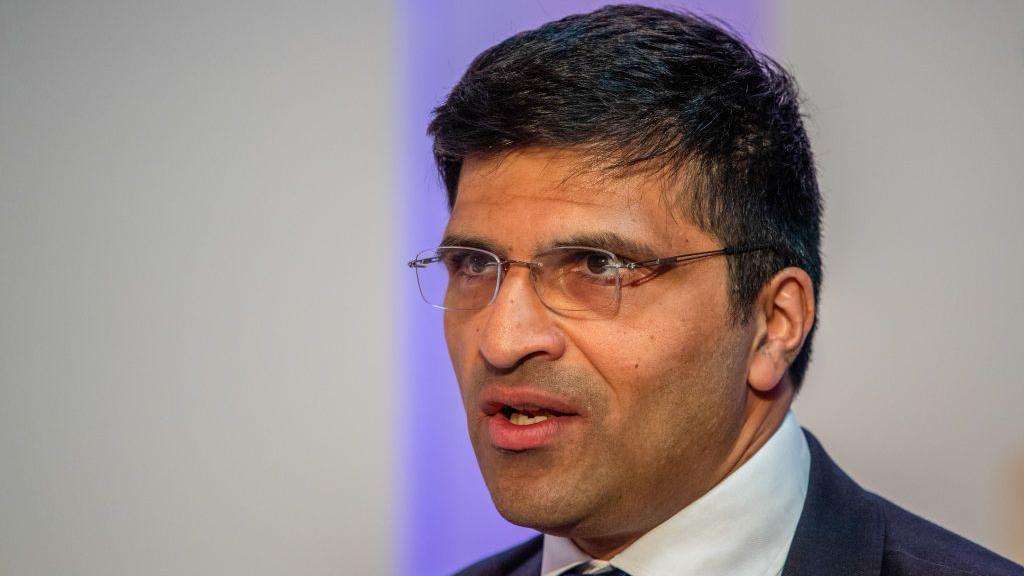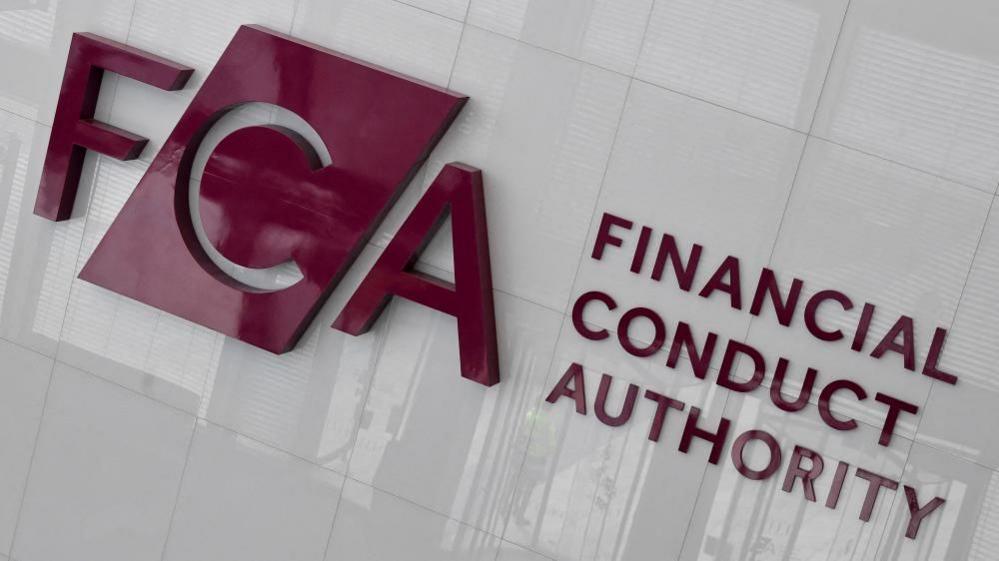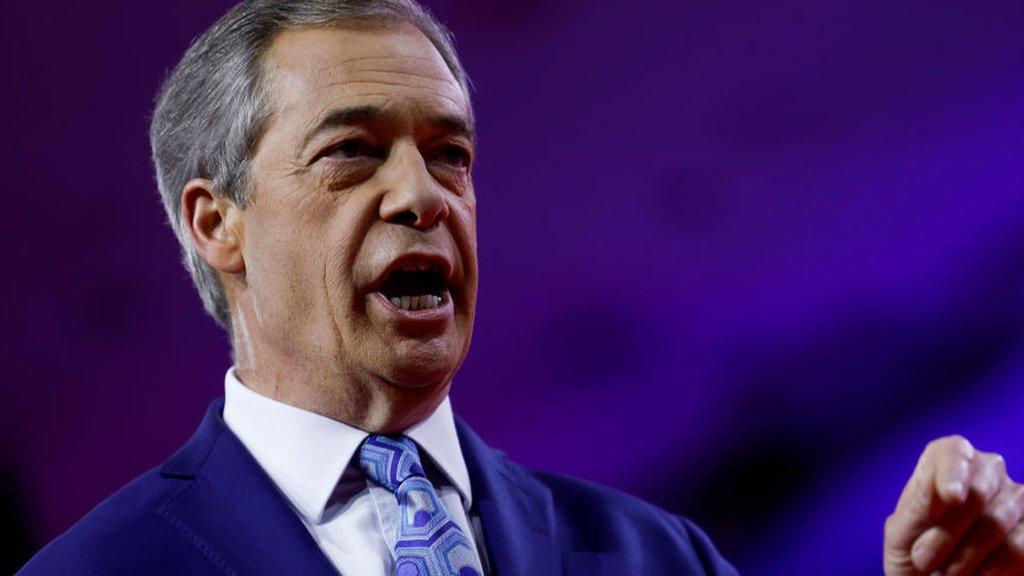Financial watchdog defends progress after MPs' criticism

- Published
The boss of the UK's financial watchdog has rejected criticism from MPs that it has failed to reform after years of scandal.
Nikhil Rathi, chief executive of the Financial Conduct Authority, said it is "tackling financial crime... on a scale that has never been done before in the UK".
He was responding to a report from a cross-party group of MPs which said the FCA was "incompetent" and that its culture has "got worse rather than better".
It also accused the FCA of failing to properly investigate the banks and other financial organisations it regulates, suggesting it may be too close to them.
The report published on Tuesday came in the wake of backlash against the FCA's handling of the Neil Woodford investment scandal and other controversies such as its debanking report.
It referenced years of similar criticism from other reports, including a 2016 paper from the New City Agenda, external which said there was "a deep seated culture of box-ticking" at the FCA.
The report also hit back against the suggestion that the FCA had changed.
"It is imperative the reader doesn’t fall into the trap of thinking that the FCA... has already resolved the long list of problems the evidence that has been painstakingly gathered shows it has, because it hasn’t," the report said.
However, in an interview with BBC Radio 4's Money Box show, Mr Rathi defended the FCA against these claims and argued the regulator had improved.
"We will always stay focused on improving our operational performance, but I don't think it would be fair to characterise the position as nothing has happened," he said.
He added that the FCA is making "record numbers of financial crime prosecutions" and that it is "one of the most evolved consumer protection regimes in the world".
Listen to Money Box on BBC Sounds
- Attribution
FCA under fire over Lloyds compensation
- Published17 December 2018
MPs summon regulators over bank inquiry
- Published7 January 2016
'Requires a debate'
The report goes on to state that the FCA may have been "captured", meaning it is too aligned with banks and other financial organisations to act against them.
It argues there are "unmanaged conflicts of interest" within the FCA because of its role both to protect consumers and promote economic growth.
It suggested the watchdog should be stripped back to a regulator purely focused on consumer wellbeing - leaving the government to focus on economic growth.
It also suggested that the FCA's leadership should be replaced "if necessary", calling its current leaders "opaque and unaccountable".
Mr Rathi said the issue of growth versus consumer protection "requires a debate", but that Chancellor Rachel Reeves was pushing it to pursue growth.
He accepted that promoting growth can mean increasing risks for consumers, pointing to changes it made to allow more companies to list in the UK, such as on the London Stock Exchange.
"We were very transparent all the way through that discussion over the previous 18 months that this would bring more risk into the system, [but] it was judged that this was necessary," he said.
"That does mean that over time a few more things will go wrong, but the risk appetite in the economy needed to adjust to support the growth that the economy needs."
On the issue of accountability, Mr Rathi said the FCA appears before Parliament and select committees and publishes more data than "any other regulator in the world".
A Treasury spokesperson told the BBC: "Many of the issues explored in the report have been extensively reviewed, and as a result the FCA has made a number of changes."
Related topics
- Published26 November 2024

- Published19 September 2023

- Published7 June 2019
